 |
<< subjects >> |
||
|
07.1
BISCAYNE FLORIDA
|
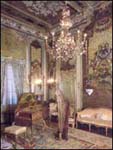 |
||
|
07.2
MIAMI JAI ALAI
|
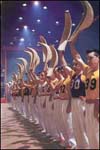 |
||
| 07.3
PLAYERS In the 1980's Miami and Tampa were sites of the three Basque clubs found in Florida. Two in Miami, namely the Toki Ona Basque Cultural Center and the Txoko Alai Society, merged in 1997, thus producing the current Euskal Etxea. The members of the Euskal Txoko of Tampa are young pelotaris who used to play daily on the local court until the time of its closure, as well as ex-pelotaris who have settled there with their families at the end of their professional careers. |
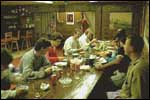 |
||
| 07.4
SAIZARBITORIA AND CENTRO VASCO Some Basque-Americans now living in Florida formerly lived in Cuba, which they abandoned with the arrival of Fidel Castro. One of them is Juan Saizarbitoria, of Mutriku, owner of the reknown restaurant "Centro Vasco" in Havana. Like a good number of his compatriots, Saizarbitoria established himself in Miami, where in the 1960's he reopened the Centro Vasco. It was located in a Cuban area of Miami and closed its doors a few years ago. |
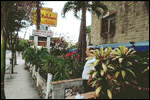 |
||
|
07.5
THE IJAPA STRIKE |
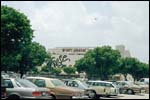 |
||